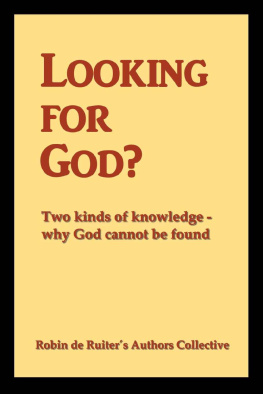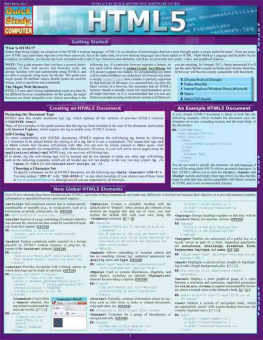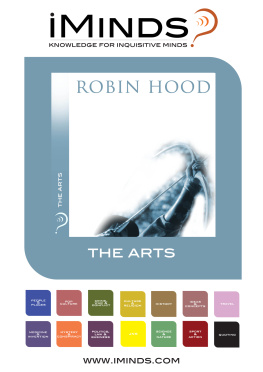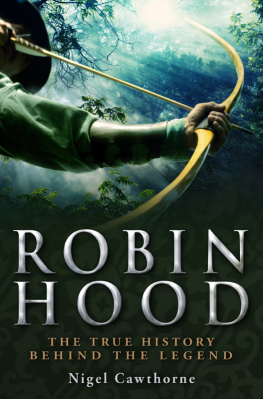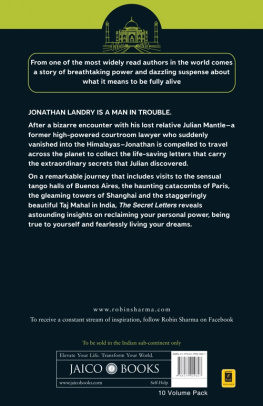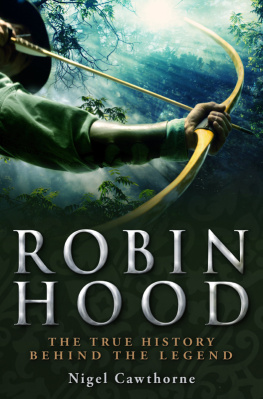Robin de Ruiter - Looking for God? Two kinds of knowledge, why God cannot be found
Here you can read online Robin de Ruiter - Looking for God? Two kinds of knowledge, why God cannot be found full text of the book (entire story) in english for free. Download pdf and epub, get meaning, cover and reviews about this ebook. year: 2012, publisher: Mayra Publications, genre: Science fiction / Religion. Description of the work, (preface) as well as reviews are available. Best literature library LitArk.com created for fans of good reading and offers a wide selection of genres:
Romance novel
Science fiction
Adventure
Detective
Science
History
Home and family
Prose
Art
Politics
Computer
Non-fiction
Religion
Business
Children
Humor
Choose a favorite category and find really read worthwhile books. Enjoy immersion in the world of imagination, feel the emotions of the characters or learn something new for yourself, make an fascinating discovery.
- Book:Looking for God? Two kinds of knowledge, why God cannot be found
- Author:
- Publisher:Mayra Publications
- Genre:
- Year:2012
- Rating:5 / 5
- Favourites:Add to favourites
- Your mark:
- 100
- 1
- 2
- 3
- 4
- 5
Looking for God? Two kinds of knowledge, why God cannot be found: summary, description and annotation
We offer to read an annotation, description, summary or preface (depends on what the author of the book "Looking for God? Two kinds of knowledge, why God cannot be found" wrote himself). If you haven't found the necessary information about the book — write in the comments, we will try to find it.
Looking for God? Two kinds of knowledge, why God cannot be found — read online for free the complete book (whole text) full work
Below is the text of the book, divided by pages. System saving the place of the last page read, allows you to conveniently read the book "Looking for God? Two kinds of knowledge, why God cannot be found" online for free, without having to search again every time where you left off. Put a bookmark, and you can go to the page where you finished reading at any time.
Font size:
Interval:
Bookmark:
..
In today's society, everything has to be measured or scientifically explained. This hasled to a world view in which God has no place. From our primary school days on, weare taught to observe the world with our senses. Our eyes see, our ears hear, ournoses smell, our tongues taste and our skin feels. The senses are the gateway to ourbrain and they allow us to gather knowledge that is stored in our brain...
Scientists focus on the above-mentioned observations and tend to exclude everythingthat cannot be observed. That is why they have repeatedly claimed that they haveexamined everything with regard to the physics, chemistry and biology but wereunable to discover God. In line with this, religious people are often considered naive.Sensory knowledge has eliminated the existence of God.
..
And yet, all of us have to admit that our senses are inadequate to answer manyquestions in life. What is the source of light, life and gravity and numerous otherquestions cannot be answered with the use of our senses. We can only observecreation with hindsight and use tests and research tosee how beautifully everythingis made. In that sense, science cannot but follow the facts.
..
Once man has reached the boundaries of sensory knowledge, he philosophizes orguesses. An example of this is Darwin, who, while on the Galapagos Islands (a groupof small islands situated in close proximity that have different flora and fauna due tothe cold gulf streams), noticed various species of finches that all belong to the samefamily. On one island more food was available to birds with short, blunt beaks, while,on another island, a small pointy beak was needed to gain access to food. Darwinused his senses to observe that the finches on different islands had different beaks...
Things started going wrong when he began philosophizing and argued that thisphenomenon proves the existence of evolution, as a result of which man evolvedfrom apes. But what exactly did he see? A finch was still a finch, even if the beakswere different. That was not proof of the existence of evolution, because creationtheory also agrees that animals can adapt to different circumstances. The idea that allspecies of dogs, from the Chihuahua to the Great Dane, have originated from a common ancestor, does not pose a problem for people who believe the world wascreated. They were dogs and that is what they still are.
So philosophy can lead us to the wrong conclusions, especially when it is designed tosupport something of which we are already convinced.
.
To answer many questions, we need other knowledge, in addition to our sensoryknowledge. We can call this revelation knowledge. Try imagining that there is a Godwho designed and created the Earth and everything on it. That he created the Earthfor man to inhabit and that he created man in His own image. God is a SpiritualBeing, which means He cannot be observed through our senses. He also created manin His likeness, as a spiritual being with a body. The soul, which is subject to themind, gave man his personality and his mind gave him the ability to reason...
What we call the subconscious is nothing more than the human mind, the actualperson. Would it not be the most natural thing in the world for God to want tocommunicate with man, and to allow man to communicate with Him? That is whyhe descended to our level. With His Mind, God sought contact with the human mind.Men who responded to this contact with faith and surrendered to God's will anddominion could be used to write down the Divine message, turning God's word intoa communication tool that a humanity that had succumbed to sin was able tounderstand using its senses, by reading it. That is why we can call the Bible a rationalmessage from God that contains the things we really need and that allows us to findHim.
..
Everyone will have to recognize that people are religious by nature and have a kindof natural hunger for God. From a creationist perspective, this makes perfect sense,because He created man as a spiritual being. The desire for the supernatural can beobscured by a scientific approach, but that does not change the fact that each andevery one of us is looking for God. To find God, the Bible is the appropriate book thattells is the reason behind creation, its origin, the source of life and light. That is whysensory knowledge without revelation is meaningless.
..
Sensory knowledge is transferred to the brain, where it is cataloged and stored forlater use. It has been said of Edison that he experimented over three thousand timesbefore he actually invented the light bulb. The same applies to virtually alltechnological inventions, like the radio and the computer, that were only developedafter a myriad of sensory experiments. The knowledge of man is not innate, but hasto be acquired through experiments. It is only in retrospect that the how and why areadded, which means they are nothing more than a description of what has beenscientifically observed.
..
Our senses are not always reliable. They can be affected by accidents, indifference,and exhaustion of wear. In addition, sensory observations are revised as time goes by.Its limitations are known and taken into account. The human mind is insatiable andwhen the limits of knowledge through sensory experiments and observations arereached, guesswork and speculation commences. Theories are developed about whatcannot be observed via the senses.
..
Darwin's theory of evolution was the result of a lack of knowledge about the why ofcreation, the origin of matter, of light and of gravity. Because Darwin refused toaccept revelation knowledge, he resorted to sensory knowledge, which would notallow him to find God and made it impossible for him to believe in God. What we seehere is a vicious circle of rationalizations as a result of the refusal to accept revelationknowledge. Darwin's senses were able to observe God's work and the design of Hiscreation, but he was unable to find the Architect. He was unable to locate the life inthe plants and animals he dissected, and yet he had to admit there was life. He couldnot see thoughts, and yet he believed in them. He could not see the human brain atwork, but he knew that it functioned. He was unable to see God and he denied Hisexistence
Man, who refused to know something that lay outside of the realm of sensoryknowledge, had suddenly become inconsistent. Darwin started guessing andtheorizing and gave us his masterpiece of speculation: the theory of evolution. Hehad reached a point where revelation knowledge was indispensable, and by refusingit, he entered the darkness of sensory knowledge. By refusing to believe in God andthe Bible, he forced himself to find a solution to the origin of the universe and endedup speculating.
..
The Bible takes a unique place among the books in the world, which distinguishes itfrom all other books by its revelation of God to mankind. By virtue of this authority,the Bible demands obedience from man, because it claims to be above man.1 TheBible is not a scientific account, but it is the father of all science, because it hasinspired all subsequent educational systems, charities and or mechanical, chemicaland biological discoveries. The greatest scientific discoveries were made in Christiancountries. As God was the Creator of everything, man, who was created in Hisimage, is capable of creating great things in the world of mechanics, architecture andindustry.
Font size:
Interval:
Bookmark:
Similar books «Looking for God? Two kinds of knowledge, why God cannot be found»
Look at similar books to Looking for God? Two kinds of knowledge, why God cannot be found. We have selected literature similar in name and meaning in the hope of providing readers with more options to find new, interesting, not yet read works.
Discussion, reviews of the book Looking for God? Two kinds of knowledge, why God cannot be found and just readers' own opinions. Leave your comments, write what you think about the work, its meaning or the main characters. Specify what exactly you liked and what you didn't like, and why you think so.

